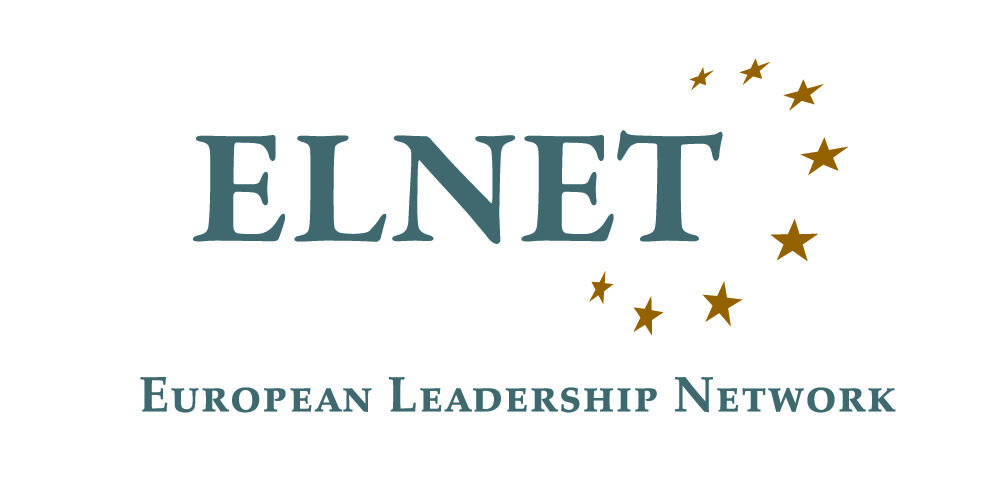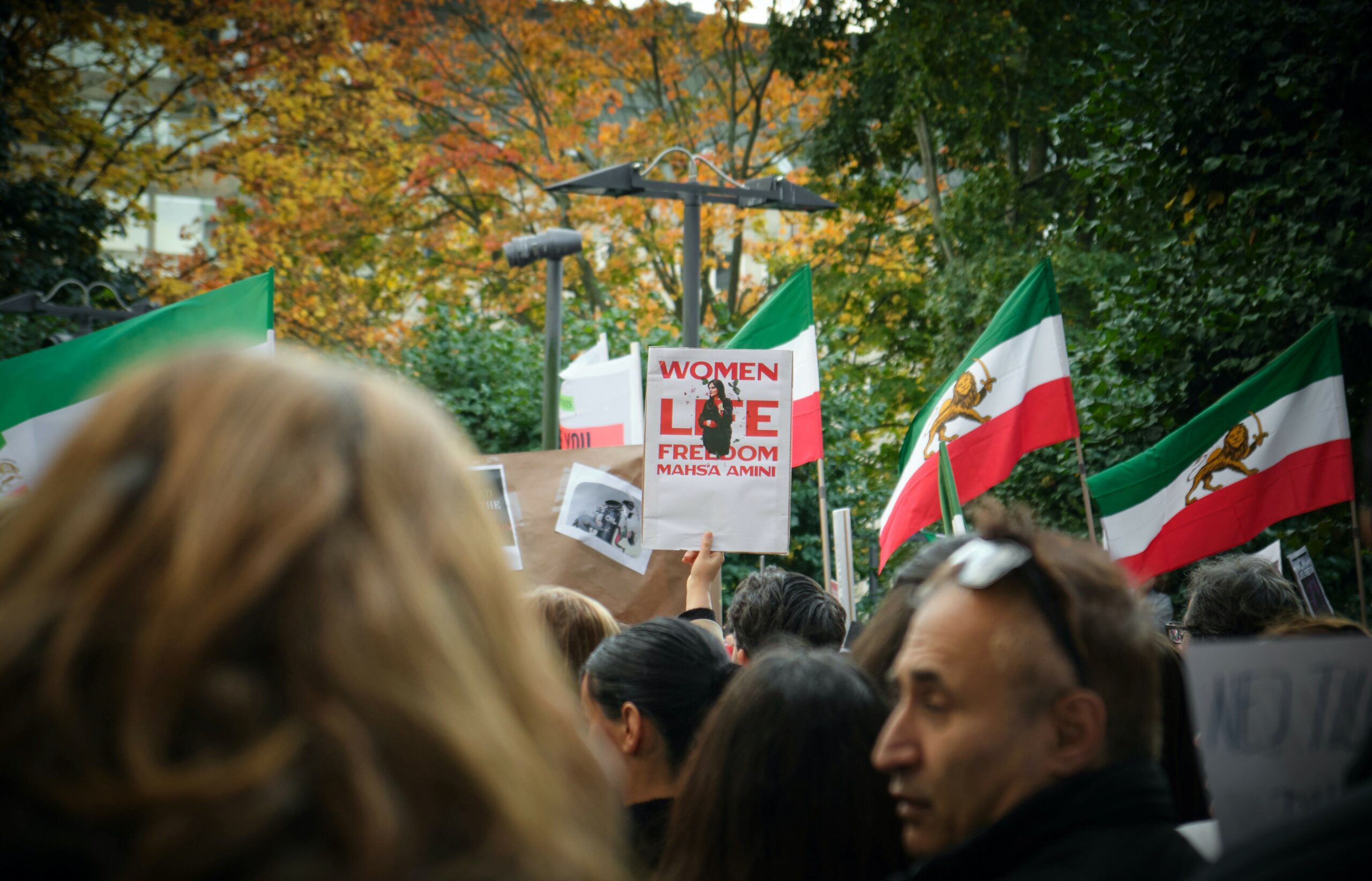By Kerstin Muller

Kerstin Müller is a member of the advisory board of ELNET-Germany. Müller has been a Senior Associate Fellow at the DGAP since April 2019. Her work focuses in particular on the Israeli-Palestinian conflict and German-Israeli relations. She previously held various political positions, e.g. from 1994 to 2002 as chairwoman of the Greens parliamentary group in the German Bundestag, Minister of State in the Federal Foreign Office between 2002 and 2005 and then as foreign policy spokeswoman for the Greens in the Bundestag. She then headed the office of the Heinrich Böll Foundation in Israel.
German and European policy towards Iran is in a dilemma. For years, the nuclear agreement has dominated relations with the Islamic Republic. The regime’s systematic human rights violations have become a minor issue. However, these violations, especially the massive violations of women’s rights, have been triggering mass protests in the country for months. The guidelines for a feminist foreign policy presented by the German Ministry of Foreign Affairs on March the 1st should be the opportunity to initiate a change in Germany’s Iran policy.
The death of 22-year-old Mahsa Jina Amini after arrest by the Iranian morality police in September 2022 resulted in nationwide protests that have not subsided to this day. Since then, women and men have been demonstrating against the apparatus of power under the slogan “Women, Life and Freedom.” They demand an end to the systematic oppression, especially of women, and a democratic change. The brutality with which the regime is attempting to crush the movement shows that this time the uprising could threaten the very existence of the regime. Human rights organizations speak of about 20,000 detainees, more than 500 killings and several executions, and currently more than 100 demonstrators threatened with the death penalty. While this has led to the movement becoming quieter, it has not silenced it. According to a representative survey with 200,000 respondents (158,000 of whom are in Iran and 42,000 outside the country) conducted by the GAMAAN Research Foundation in December 2022, 81 percent of Iranians oppose the regime, and among exiled Iranians, the figure is 99 percent. Moreover, the protests are supported by 67 percent of Iranians inside the country and 90 percent of Iranian living outside the country.
It is a situation that also challenges the international community, especially the EU and Germany, which have been criticized for being too reluctant in their response to the protests so far. Germany is under particular pressure, as the current government has for the first time enshrined a Feminist Foreign Policy (FFP) in its coalition agreement. On March 1st, the Ministry of Foreign Affairs presented the announced guidelines for a feminist foreign policy.
Therefore, the question arises, when women are leading the revolution on the streets in Iran and are risking their lives for their rights, whether it is not precisely against this background that the time has come to implement FFP in practice and to initiate a fundamental change in Germany’s Iran policy.
Feminist foreign policy in the context of the Iranian revolution
Opponents of such a demand argue that this response would fall short, since the FFP refers to much more than women’s rights and protests. In fact, a feminist foreign policy targets the underlying structural inequalities in a society and its power relations. Based on a comprehensive understanding of human security, it calls for the protection of human and women’s rights. The problem is that since the Swedish government became the first government in the world to commit to an FFP in 2014, there has been a theoretical framework but little feminist foreign policy in practice.
However, this speaks even more in favor of reassessing the situation in Iran along the principles of a German FFP. After all, an abstract principle – this applies for foreign policy as well – is only worth as much as it passes the test in praxis. In this respect, the current protests in Iran and the protest movement’s dramatic call for more international support appear to be a Litmus test for a feminist foreign policy: taking its principles seriously in the sense of a value-based policy is also an opportunity to put Germany’s and Europe’s Iran policy in general to the test.
“There are many reasons to reassess the situation in Iran along the principles of a German FFP”
In concrete terms, the Federal Foreign Office’s feminist foreign policy is based on the so-called 3R+D approach, i.e. rights, representation, resources and diversity. This means that a feminist foreign policy firstly focuses on safeguarding and promoting women’s human rights, secondly aims to include the interests of local affected people, and thirdly provides appropriate resources to protect women and marginalized groups. This approach is complemented by promoting diversity in all three areas. In Iran, we face massive human rights violations by the regime against children, women, men, and minorities, such as Kurds, Baluchis, and Bahais. A recent example is the imposition of a death sentence on Jamshid Sharmahd, a German-Iranian. As a result, the EU and the Bundestag have passed comprehensive resolutions, including sanctions against individuals and entities of the regime. An important success was the joint German-Iranian initiative before the UN Human Rights Council in November 2022, which led to the decision to establish an international commission of inquiry regarding the Iranian regime’s human rights crimes.
Foreign policy dilemma: between nuclear issue and human rights protection
Nevertheless, German and European policy-makers are in a dilemma. For years, the so-called nuclear dossier has dominated international relations with Iran. As a consequence, the systematic human rights violations that the regime has always regularly committed have become a minor matter. Negotiations on the 2015 Iran nuclear deal-the Joint Comprehensive Plan of Action (JCPOA)-which President Trump’s administration unilaterally terminated in 2018, had only resumed in April 2021 by the administration of Joe Biden and the other states involved. The goal was to get Iran back to fulfilling its obligations under the agreement.
Certainly, the 2015 agreement was an important diplomatic milestone. It was intended to prevent Iran from producing highly enriched weapons-grade uranium, and thus becoming a nuclear threat to the region and beyond. From the perspective of a feminist foreign policy, nuclear-weapon-free life and nuclear non-proliferation should also be considered as important human rights. At the same time, it is time to take stock of where the Iran nuclear agreement stands today and whether it has a chance of succeding.
One problem is that the Iranian regime has already been unwilling to meet its obligations under the deal since 2019. In 2022 alone, it has rejected twice the compromises presented, most recently in September. Also weighing heavily is that just this February, the International Atomic Energy Agency (IAEA) found highly enriched uranium that has a purity level of 83.7 percent, making it almost weapons-grade. Although Iran denies it and the find is still under investigation, officials of the Iranian Regime openly admitted in July 2022 to already possessing 60 percent enriched uranium, although only 3.67 percent is allowed under the agreement. Iran has threatened that it would be easy to enrich further to 90 percent. The JCPOA’s other policy goals, such as strengthening reformers within Iran, also appear to have failed. Moreover, the regional arms race has long since begun.
Second, even in the unlikely event of a 180-degree turnaround by the regime, it would be difficult to imagine the international community publicly shaking the hands of the mullahs, with the blood of thousands of demonstrators on their hands. It is also hard to imagine mitigation of sanctions, which the mullahs would demand in return, and the removal of the Revolutionary Guards from the terror list. President Joe Biden would not survive that politically, nor would the German government.
Officially declare the Iran nuclear deal as over
In view of the fact that the original goals of the JCPOA could not be achieved and cannot be implemented with this regime in the foreseeable future, it must be stated that the attempt to subject Iran’s nuclear program to an international control regime has finally failed. In short, the Iran deal is now politically dead. Even IAEA chief Rafael Grossi has already declared that the agreement is nothing more than an empty shell.
The international community’s reluctance is met with incomprehension, especially by Iran’s democracy movement. It fears, probably rightfully so, that the international community wants to keep a back door open – in case the movement fails once again, as it did in 2009, 2017 and 2019. The global community, and also the German government and the EU, are thus accepting that their own policies will suffer an enormous loss of credibility and that the Iranian democracy movement will be politically weakened.
If it is clear that it will no longer be possible to negotiate with this regime in the distant future, because its actors belong before the International Criminal Court, then it is precisely in the spirit of a value-driven foreign policy such as the FFP that the time has come to officially declare the nuclear agreement terminated. The IAEA’s report in March, for example, which is likely to be critical, could provide the occasion for such a withdrawal.
“It is precisely in the spirit of a value-driven foreign policy such as the FFP that it is time to officially declare the Iran nuclear agreement terminated.”
It is precisely from a feminist values-based approach that the international community, above all the EU and Germany, must isolate the Islamic regime at all international levels, tighten sanctions in a targeted manner, support civil society to the best of its ability, including financially, and politically put every effort into the democracy movement – even if it is uncertain whether it will win. German foreign policy must also act with regard to the FFP principle of representation, especially, what the affected local people want. The Gamaan study mentioned above clearly shows what the people in Iran expect from the West: 61 percent are in favor to an end to the nuclear negotiations. More than 70 percent demand serious pressure on the regime and targeted sanctions against those responsible, as well as that the Revolutionary Guards be put on the EU terror list. Among Iranian exiles, more than 90 percent support all of these demands.
Even if critics argue that an official withdrawal from the JCPOA would only be symbolic politics, the international community should take the will of the people in Iran seriously and send a strong signal of political solidarity. Certainly, such a decision must be made upon European consultation and internationally coordinated, especially with the United States, and not on its own as Donald Trump did at the time. But if the German government were to spearhead such an initiative, it could bring about a change not only in German, but also in European and international Iran policy – guided by the feminist realization that the best guarantee for a nuclear-weapons-free Iran of tomorrow is a democratic Iran of today.
Translated from German: “Frauenproteste in Iran: Feministische Außenpolitik als Chance für einen Wandel der deutschen Iran-Politik“ published by Kerstin Müller at the DGAP website, 1.3.2023, Berlin.

